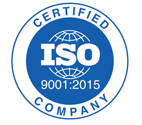
Are you confident you are selecting the right suppliers? This is a question that many Quality and Compliance executives in the Life Sciences industry wrestle with on a daily basis. Your customers are counting on you to provide the highest quality products, and partnering with the right suppliers is critical in helping you fulfill this important obligation and drive success throughout your department.
Developing an effective selection process is no easy task. It can be a time-consuming, grueling endeavor requiring consideration of a myriad of factors beyond just competency, price, and capacity. While there are many potential pitfalls, here are five critical mistakes that you should definitely avoid when assessing potential suppliers:
1. Forgetting Your Values
Successful partnerships arise from close alignment of values. Take a hard look at your supplier’s culture. What do they value? Reliability, speed, customer service? What are their goals? You should check out their website, read articles, and talk to references to gain insight, but there’s really no substitute for a face-to-face meeting. Take the time to meet, not only with the individuals that would be your day-to-day contacts but with individuals at the very top levels of their organization. Witnessing in-person the tone from the top will go a long way to determining if misalignment of values exist. You need to ask yourself, "Are these the people I want to be dealing with in good times and, more importantly, when you encounter bumps in the road."
2. Undervaluing Soft Skills
Your supplier must have the technical competence to partner with you effectively; that goes without saying. But, just as you would assess a candidate applying for a position on your Quality team, be sure to take a hard look at the soft skills of your potential supplier. Will they be flexible and easy to deal with? Do they build effective, meaningful relationships? How do they react in pressure situations? Do they communicate effectively and transparently? Even with the greatest of technical skills, the answers to these questions can mean the difference between success and failure.
3. Ignoring Your Colleagues
When selecting a supplier, it’s vital to gather different perspectives. Your colleagues within different departments of your company (manufacturing, R&D, Finance, Legal, etc.) bring a lot to the table: different backgrounds, different expertise, and different experiences. Survey your team. What were the keys to successful supplier relationships that they encountered? What are some lessons learned? Bottom line: don’t put the decision all on yourself. Get together a cross-functional team and establish a project leader, or chairperson, who can drive results and evaluate milestones.
4. Focusing Solely on Price
Of course, price is a component that needs to be considered. We all have budgets that are being closely monitored by the executive team, and therefore face pressure to go with the most cost-effective option. Keep in mind that what may seem like a cost-saving move can end up costing far more in the end. If a partnership with a supplier fails, it can bring about significant monetary repercussions including contract termination penalties, legal fees and litigation, and costly remediation efforts.
5. Rushing a Decision
You’ve got a lot on your plate and, consequently, you’re looking to move fast and get a new supplier on board immediately. It’s certainly understandable, but this is a decision you can’t afford to rush. There’s too much at stake. Take the time to do your homework, not only with respect to your potential suppliers but with respect to your own organization. Find out if your company has a supplier diversity program as this could be a factor in your selection process. Make sure you have a robust, well-thought-out selection process with documented assessment criteria, and don’t settle just for the sake of getting it done. If you’re not finding what you are looking for, be patient and keep at it.





